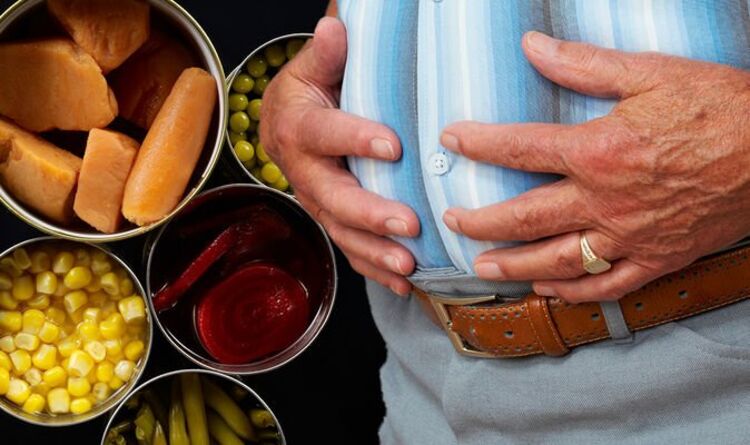Stomach cancer: Surgeon explains the symptoms
We use your sign-up to provide content in ways you’ve consented to and to improve our understanding of you. This may include adverts from us and 3rd parties based on our understanding. You can unsubscribe at any time. More info
Glancing at cancer statistics can make you feel like you’re sitting ducks but they’re proven ways to modify your risk. Research into the risk factors that underpin stomach cancer provides clear evidence of this. Stomach cancer, also known as gastric cancer, is cancer that starts anywhere inside the stomach or the stomach wall.
Multiple studies have drawn a surprising association between pickled vegetables and an increased risk of stomach cancer.
Pickled vegetables are those products for which preparation is carried out by an edible acid (which is added or formed in situ by fermentation) and preservation is due, at least partially, to the presence of this acid.
The pickling process also adds a high salt content to the foods.
The extent to which eating pickled vegetables increases stomach cancer risk was suggested in a 2012 study published in the journal Cancer Epidemiology, Biomarkers & Prevention.

DON’T MISS
How often do you shower? You could be weaking your immune system [INSIGHT]
Dementia: The sign when walking that may precede memory loss [ADVICE]
Diabetes: The red drink that lowers blood sugar within hours [ADVICE]
Researchers conducted a meta-analysis of epidemiologic observational studies to evaluate the existing evidence.
Searching PubMed, Vip Chinese Periodical, and China National Knowledge Infrastructure databases, researchers found a total of 60 studies.
They compared gastric cancer risk in pickled vegetable/food users versus nonusers or versus those in the lowest reported category of use.
After pooling together their findings, the researchers found a “potential 50% higher risk of gastric cancer associated with intake of pickled vegetables/foods and perhaps stronger associations in Korea and China”.
Another meta-analysis echoed these findings.
The analysis, published in the journal Cancer Science, concluded that high intake of pickled vegetables was “significantly associated” with an increased risk of stomach cancer.
What accounts for this impact?
Pickled vegetables and smoked, cured, salted, or dried fish or meat contain nitrite or N-nitroso compounds.
These preserved foods, as well as grilled or charcoal flame-broiled food that contains polycyclic aromatic hydrocarbons, have been shown to be associated with increased risk of stomach cancer in most studies.

What’s more, salt intake may increase the extent of H. pylori infection.
According to Cancer Research UK, the association between salt and stomach cancer risk may be limited to people with H. pylori infection and can inflame stomach tissue directly.
The charity acknowledges that “variability between studies may reflect differences in salt intake assessment or confounding by other components of high-salt foods/diets”.
Other risk factors include:
- Are over the age of 50
- Are a man
- Have certain stomach conditions, such as long-term, severe acid reflux, gastritis or a condition called Pernicious anaemia, which affects your immune system
- Have a brother, sister or parent who had stomach cancer.

It is important to get any symptoms of stomach cancer checked by a GP.
The NHS explains: “Even if you do not think you fit into any of the groups with a higher chance of getting it. Anyone can get stomach cancer.”
Symptoms can include:
- Heartburn or acid reflux
- Having problems swallowing (dysphagia)
- Feeling or being sick
- Symptoms of indigestion, such as burping a lot
- Feeling full very quickly when eating.
“You might find you get used to them. But it’s important to be checked by a GP if your symptoms change, get worse, or do not feel normal for you,” adds the NHS.
Source: Read Full Article
